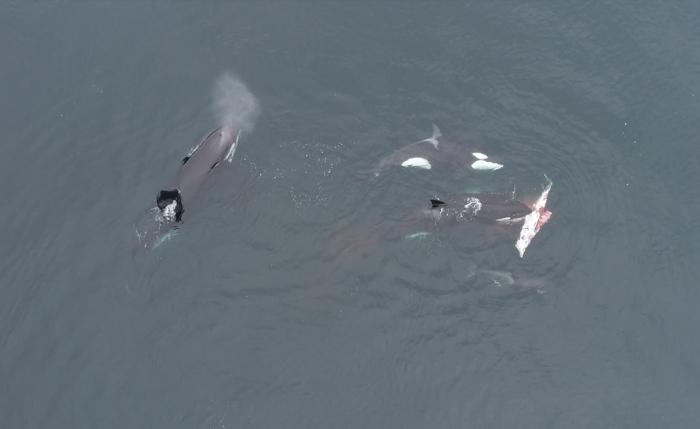A new warning has been issued after two boats were attacked by a pair of killer whales off the coast of Spain.
A Spanish Maritime Rescue ship was called after the boats were rammed by orcas just minutes apart in the waters of Galicia.
Rescuers towed an orca-damaged ship back into the harbour before they were alerted to another attack.
The first attack occurred off the coast at O Grove, in which a pair of orcas, one estimated to be around seven metres long, rammed into the boat and destroyed its rudder.
The skipper of the ‘San Pedro’ boat told Spanish newspaper Faro de Viga: “It was a quarter past six in the evening when we felt two knocks, and when we looked, we saw that there were two orcas and that the rudder was destroyed.”
The boat had to be towed back into the dock by Maritime Rescue.

The rescue ship then had to go back out to sea to save another boat, which was thought to have been attacked by the same pod of orcas and had suffered a leak.
A crew member said: “The truth is that we were very scared; we were actually really ‘scared’ when we realised that the killer whales were hitting the boat.”
In July, British sailors were also warned of the same behaviour after their boat was rammed by a pod of orcas off the coast of Spain.
Experts have advised sailors to beware of killer whales and familiarise themselves with what to do if they encounter them.
Since May 2020, researchers have documented hundreds of incidents of orcas ramming into boats near the Iberian Peninsula, sparking several theories and research into the rise in the behavioural trend.
Leading marine biologist Alex Zerbini, chair of the scientific committee at the International Whaling Commission (IWC) said the killer whale behaviour was most likely to be a new “cultural tradition”, or a “fad” without an obvious purpose.
His report said: “Some populations may also develop unusual and temporary behavioural ‘fads’ and other idiosyncrasies that do not appear to serve any obvious adaptive purpose.”




